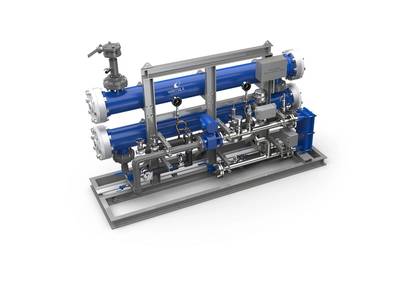The technology group Wärtsilä has agreed to supply globally operating tanker vessels managed by Minerva Marine with Aquarius ballast water management systems (BWMS). The agreement covers the retrofit of several vessels and represents an important milestone in the BWMS retrofit market.
The main BWMS chosen for tankers managed by Minerva Marine Inc. is the Wärtsilä Aquarius ATEX compliant Electro Chlorintation EX, which uses a proven two-stage process involving both filtration and electro-chlorination (EC). The system is EX/ATEX approved, which is a requirement for oil tankers. In addition to the main systems, the agreement includes local service support, such as training, spare parts, annual inspections and lifecycle support provided by Wärtsilä.
Securing safe operations
Minerva Marine Inc. is a private company which manages a robust fleet of VLCC, Aframax, Suezmax, Medium Range tankers and Capesize bulk carriers.
"The operation of vessels under our management, which involves carrying crude oil and product cargoes around the world, allows no exceptions when it comes to safety and environmental protection. Wärtsilä was able to offer a strong safety-led and reliable design approach that is expected to meet the requirements of the complex market we operate in. The possibility to get lifecycle support from Wärtsilä's worldwide service network and the BWMS' compliance within challenging environmental parameters also affected our choice of supplier," say Minerva Representatives, Stavros Daniolos, Technical manager and Vayia Hatziyianni, Project team leader.
About ballast water
Ballast water may be taken onboard by ships for stability and can contain thousands of aquatic or marine microbes, plants and animals, which are then carried to other parts of the world. Untreated ballast water released at the ship's destination can potentially introduce new invasive species, with devastating consequences for the local ecosystem. The International Convention for the Control and Management of Ships' Ballast Water and Sediments (2004) was adopted to introduce global regulations to control the transfer of potentially invasive species. It requires ballast water to be treated before being released into a new location. The BWM Convention will enter into force on 8 September 2017.

















